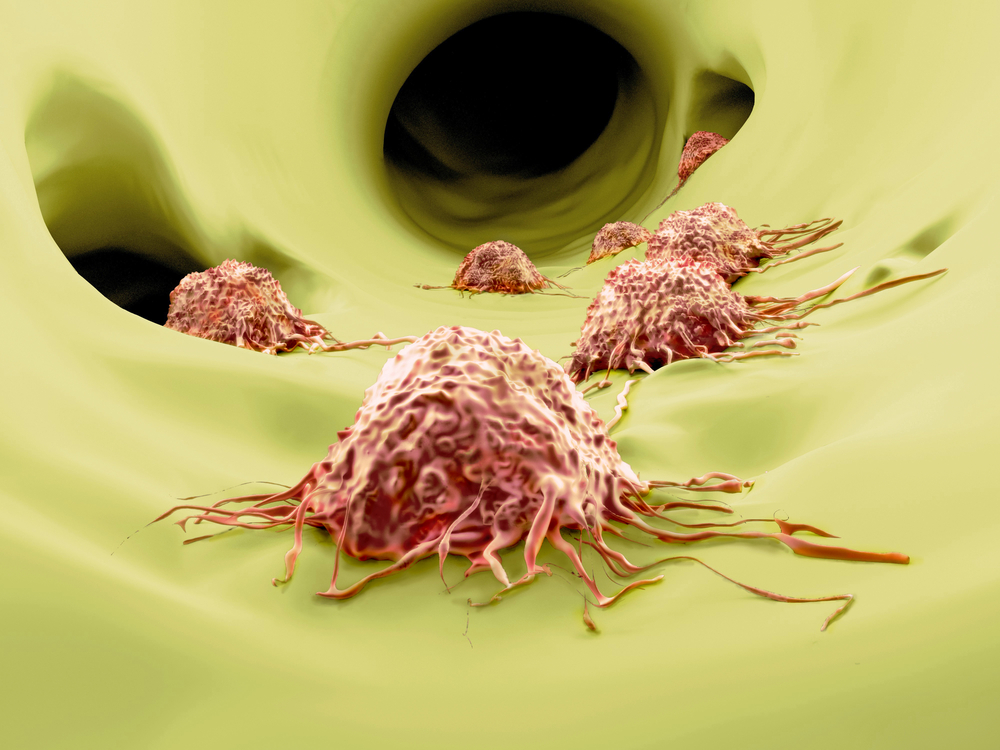In a new study entitled “TGF-β1-induced EMT promotes targeted migration of breast cancer cells through the lymphatic system by the activation of CCR7/CCL21-mediated chemotaxis,” researchers discovered how cancer cells travel trough the lymphatic system to reach distant body parts, away from the primary tumor location. The newly discovered mechanism shows how cancer cells ‘disguise’ themselves as immune cells to travel the lymphatic system and generate metastases. The study was published in the journal Oncogene.
In this study, researchers at Karolinska Institutet in Sweden studied how cancer cells choose the lymphatic system and travel through it to reach distant body parts and form metastases in crucial organs, such as lungs and liver. Tumor cells’ dissemination is the key event underlying cancer associated deaths, as such, understanding how cancer cells choose between lymphatic and blood vessels for migration is crucial to develop more effective anti-cancer therapies.
A multidisciplinary team of researchers discovered that tumors cells acquire properties of immune cells when exposed to an inflammatory factor known as TGF-beta (short for transforming growth factor-beta). They discovered that TGF-beta promotes the expression of a receptor, CCR7, in tumor cells, giving them the capacity to sense and travel through lymphatic endothelial cells that express its counterpart receptor, CCL21. As a result, TGF-beta confers cancer cells’ properties of certain immune cells (white blood cells) that travel through the lymphatic system by enabling them to express the CCR7 receptor. In this way, cancer cells can sense and choose the lymphatic vessels and migrate towards the lymph nodes, as immune cells. Once in the lymph nodes, cancer cells can spread towards vital organs. The newly described mechanism unveils an unknown link between inflammation and cancer and is thus a crucial development towards new therapeutics.
Jonas Fuxe, cancer researcher and Associate Professor at Karolinska Institutet’s Department of Medical Biochemistry and Biophysics and study lead author commented, “It’s not clear whether there are signals controlling this or whether it’s just random. However, in recent years it has become evident that inflammation is a factor that can promote metastasis and that anti-inflammatory drugs may have a certain inhibitory effect on the spread of cancer. With this discovery in our hands, we’d now like to try to find out which additional immune-cell properties cancer cells have and study how they affect the metastatic process. The possibility of preventing or slowing down the spread of cancer cells via the lymphatic system is an attractive one, as it could reduce the risk of metastasis to other organs.”


